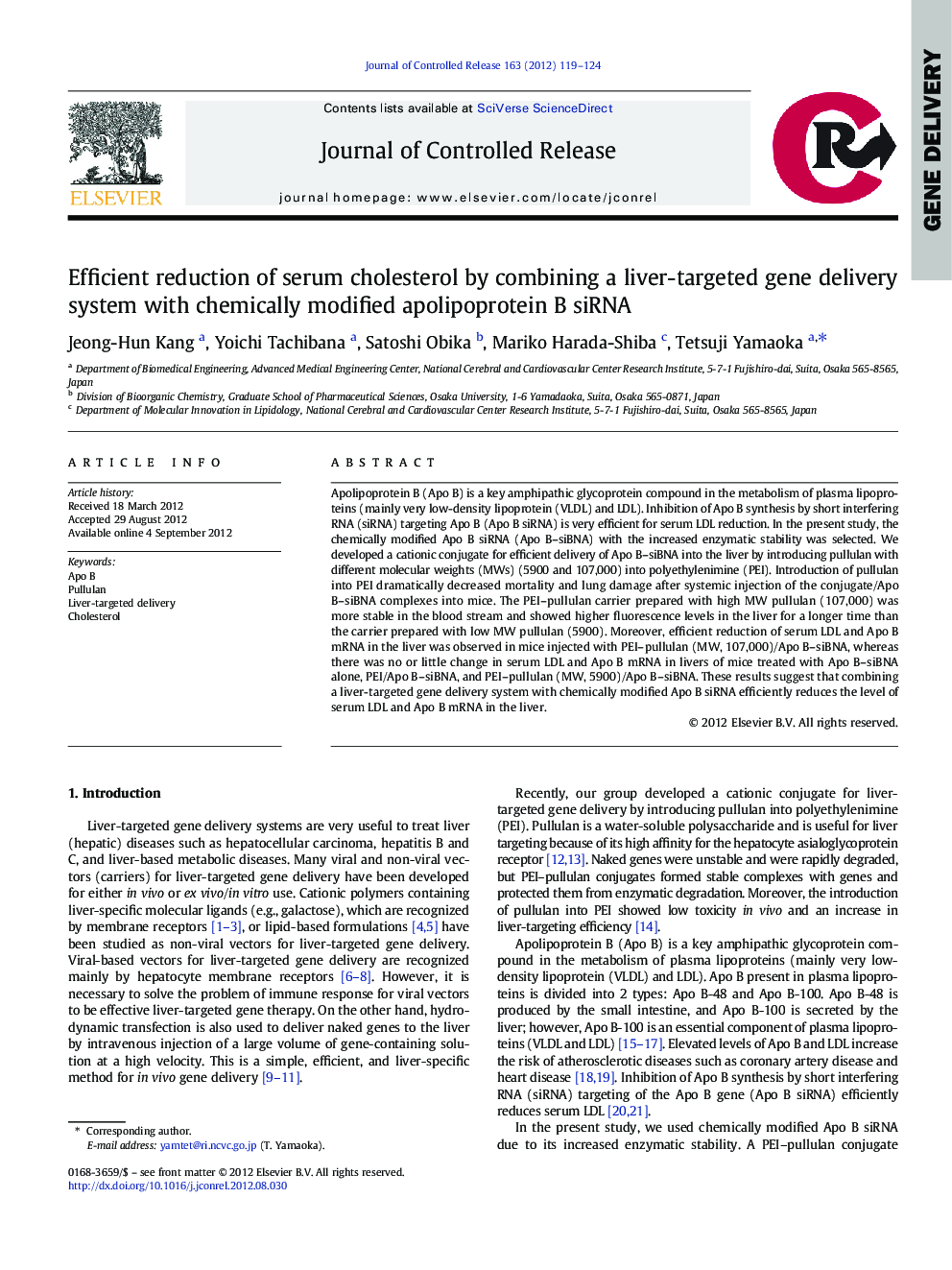| Article ID | Journal | Published Year | Pages | File Type |
|---|---|---|---|---|
| 1424378 | Journal of Controlled Release | 2012 | 6 Pages |
Apolipoprotein B (Apo B) is a key amphipathic glycoprotein compound in the metabolism of plasma lipoproteins (mainly very low-density lipoprotein (VLDL) and LDL). Inhibition of Apo B synthesis by short interfering RNA (siRNA) targeting Apo B (Apo B siRNA) is very efficient for serum LDL reduction. In the present study, the chemically modified Apo B siRNA (Apo B–siBNA) with the increased enzymatic stability was selected. We developed a cationic conjugate for efficient delivery of Apo B–siBNA into the liver by introducing pullulan with different molecular weights (MWs) (5900 and 107,000) into polyethylenimine (PEI). Introduction of pullulan into PEI dramatically decreased mortality and lung damage after systemic injection of the conjugate/Apo B–siBNA complexes into mice. The PEI–pullulan carrier prepared with high MW pullulan (107,000) was more stable in the blood stream and showed higher fluorescence levels in the liver for a longer time than the carrier prepared with low MW pullulan (5900). Moreover, efficient reduction of serum LDL and Apo B mRNA in the liver was observed in mice injected with PEI–pullulan (MW, 107,000)/Apo B–siBNA, whereas there was no or little change in serum LDL and Apo B mRNA in livers of mice treated with Apo B–siBNA alone, PEI/Apo B–siBNA, and PEI–pullulan (MW, 5900)/Apo B–siBNA. These results suggest that combining a liver-targeted gene delivery system with chemically modified Apo B siRNA efficiently reduces the level of serum LDL and Apo B mRNA in the liver.
Graphical abstractFigure optionsDownload full-size imageDownload high-quality image (47 K)Download as PowerPoint slide
